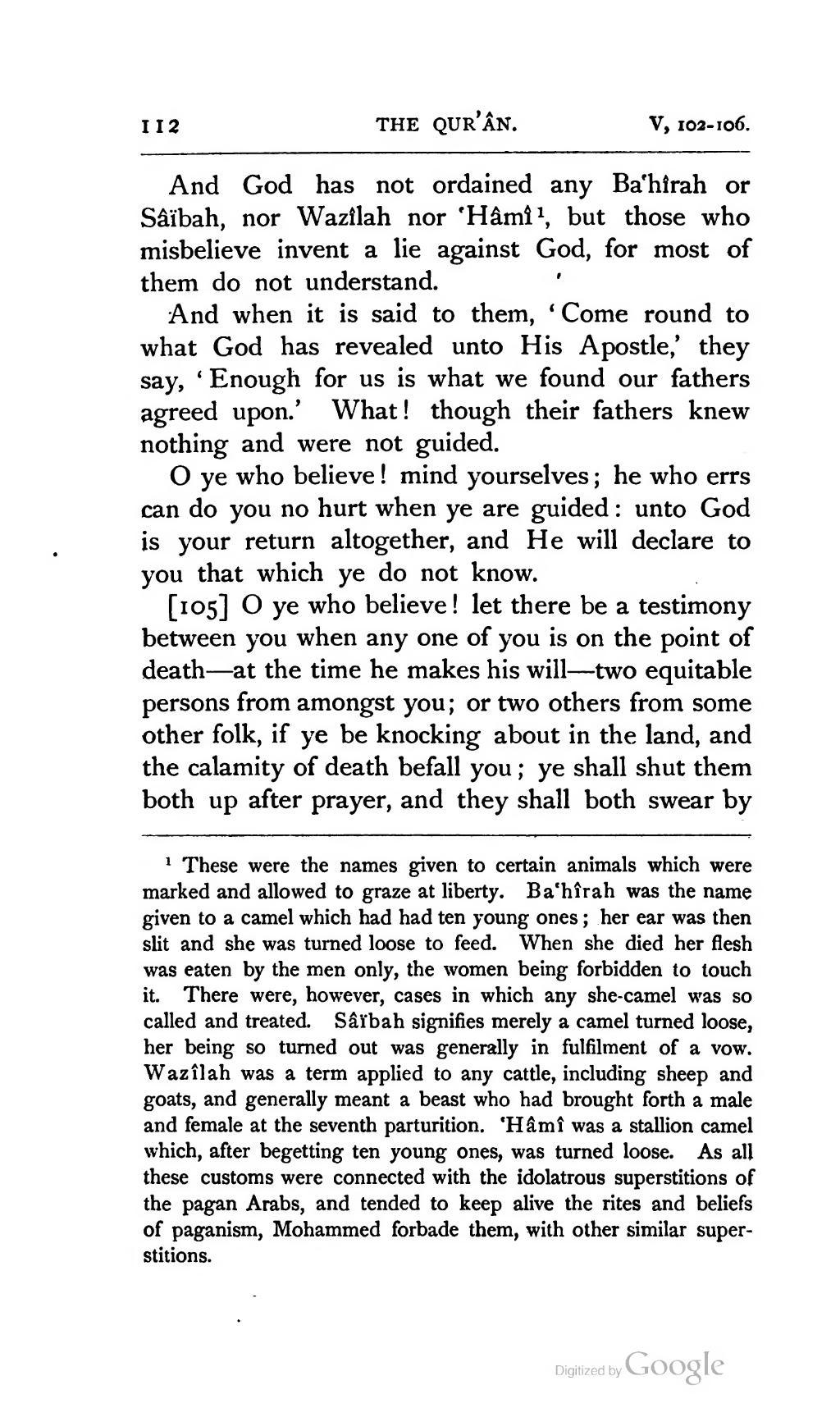And God has not ordained any Ba′hîrah or Sâïbah, nor Wazîlah nor ′Hâmî[1], but those who misbelieve invent a lie against God, for most of them do not understand.
And when it is said to them, ‘ Come round to what God has revealed unto His Apostle,’ they say, ‘ Enough for us is what we found our fathers agreed upon.’ What ! though their fathers knew nothing and were not guided.
O ye who believe ! mind yourselves ; he who errs can do you no hurt when ye are guided : unto God is your return altogether, and He will declare to you that which ye do not know.
105 O ye who believe! let there be a testimony between you when any one of you is on the point of death — at the time he makes his will — two equitable persons from amongst you ; or two others from some other folk, if ye be knocking about in the land, and the calamity of death befall you ; ye shall shut them both up after prayer, and they shall both swear by
- ↑ These were the names given to certain animals which were marked and allowed to graze at liberty. Ba′hîrah was the name given to a camel which had had ten young ones ; her ear was then slit and she was turned loose to feed. When she died her flesh was eaten by the men only, the women being forbidden to touch it. There were, however, cases in which any she-camel was so called and treated. Saibah signifies merely a camel turned loose, her being so turned out was generally in fulfilment of a vow. Wazîlah was a term applied to any cattle, including sheep and goats, and generally meant a beast who had brought forth a male and female at the seventh parturition. ′Hâmî was a stallion camel which, after begetting ten young ones, was turned loose. As all these customs were connected with the idolatrous superstitions of the pagan Arabs, and tended to keep alive the rites and beliefs of paganism, Mohammed forbade them, with other similar superstitions.
